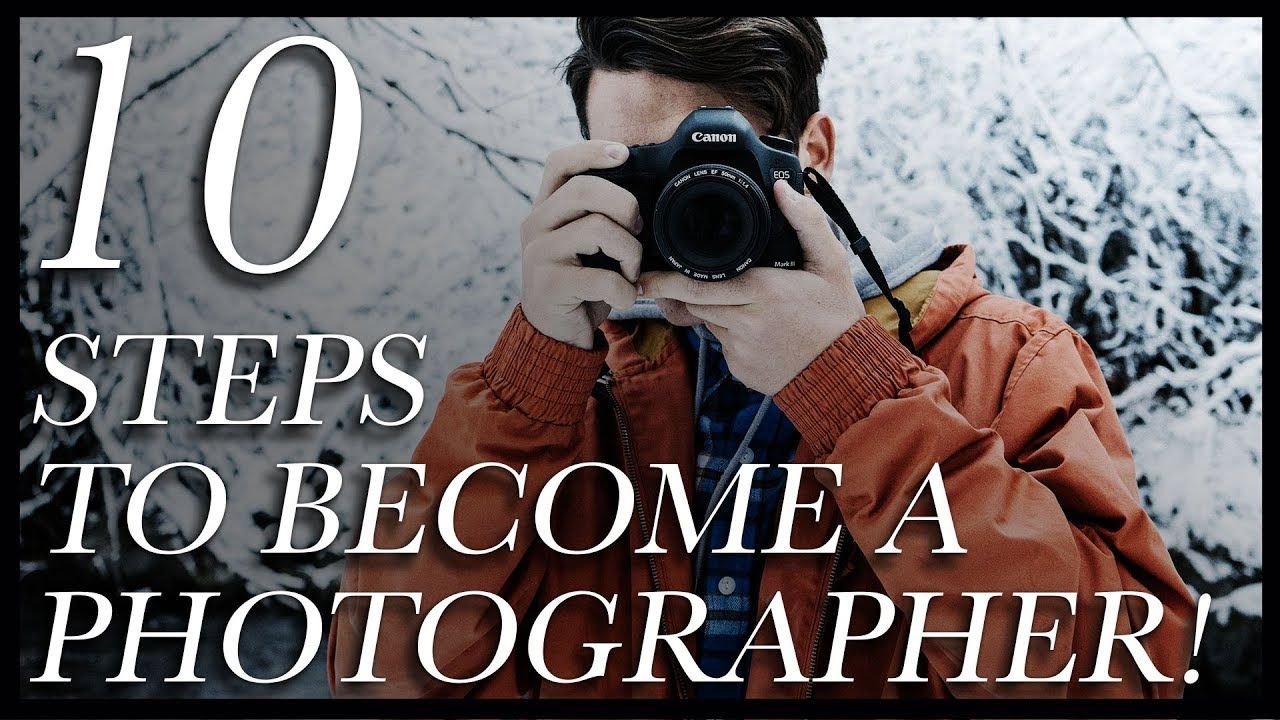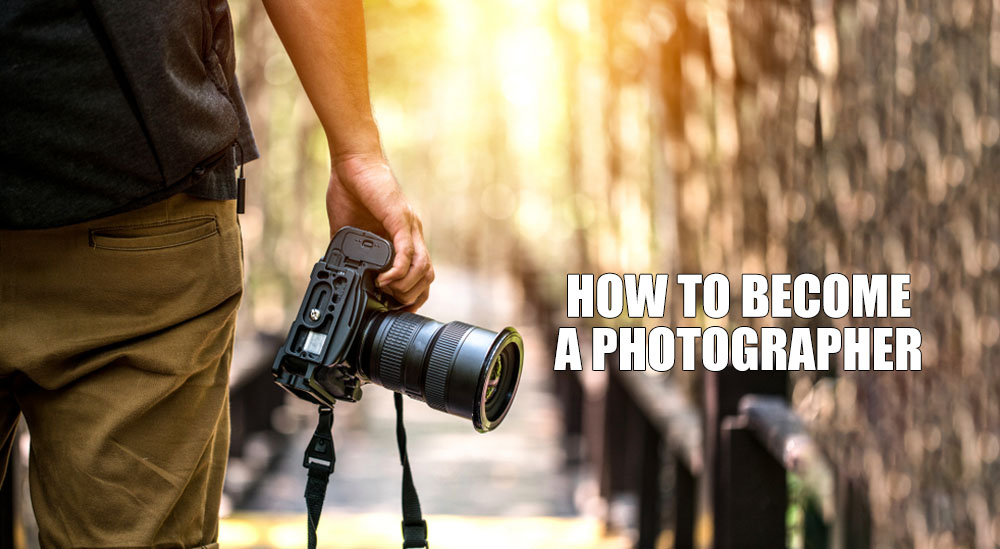If you've ever scrolled through stunning visuals on the internet, there's a good chance you've encountered images from Getty Images. Becoming a photographer for this renowned platform is a dream for many creatives. Not only does it provide a chance to showcase your work to a massive audience, but it also opens doors for potential income. In this guide, we’ll dive into what it takes to join the ranks of Getty photographers, starting with an understanding of the platform itself.
Understanding Getty Images

Getty Images is one of the leading providers of stock photographs, editorial images, and video footage in the world. Established in 1995 by Mark Getty and Jonathan Klein, it has become synonymous with high-quality visual content. Here’s what you need to know about Getty Images:
- Diverse Offerings: Getty Images offers a wide range of content, including stock photos, editorial images, and royalty-free videos. They cater to various markets, including advertising, marketing, and editorial purposes.
- Global Reach: The platform serves clients worldwide, including publishers, brands, and creative agencies. This global reach means that your photos can be seen and purchased across different markets and industries.
- High Standards: Getty Images has a reputation for quality. They seek photographers who can produce visually striking and technically sound images that meet their specific guidelines.
- Stock Photography vs. Editorial: It's essential to distinguish between stock and editorial photography. Stock images are typically posed and staged, while editorial photos document real-life events and situations. Know what category your work fits into for better chances of acceptance.
- Licensing: Photographers earn money through licensing their images. Getty Images provides various licensing options, allowing photographers to earn a commission each time their work is downloaded or purchased.
Understanding these key aspects of Getty Images is crucial for aspiring photographers. Knowing what the platform offers and expects can help you tailor your portfolio and approach, ultimately increasing your chances of being accepted as a contributor. So, let’s dive deeper into how you can prepare yourself for this exciting opportunity!
Also Read This: How to Add Links in Behance: Integrating External Links into Your Portfolio
Essential Skills and Equipment

Becoming a photographer for Getty Images isn't just about having a good eye; it also requires a specific set of skills and the right equipment. First and foremost, let's talk about the essential skills.
- Technical Proficiency: Understanding your camera and its settings is paramount. You need to know how to manipulate exposure, aperture, and shutter speed to capture the best possible images in various lighting conditions.
- Composition: Good compositional skills are vital for creating visually appealing images. This includes an understanding of framing, the rule of thirds, and perspective.
- Post-Processing: Familiarity with photo editing software, like Adobe Lightroom or Photoshop, allows you to enhance your images and ensure they meet the high standards set by stock photography platforms.
- Creativity: Stock photography needs to stand out. Being able to think outside the box and find unique ways to portray common subjects can set your work apart.
Now, on to equipment. While you don't need to invest in the most expensive gear, having the right tools is crucial:
| Type of Equipment | Description |
|---|---|
| Camera | A DSLR or mirrorless camera with manual settings is ideal for professional-quality photos. |
| Lens | Invest in versatile lenses like a 24-70mm for various shooting conditions. |
| Tripod | A sturdy tripod helps with long exposure shots and ensures stability. |
| Lighting | Natural light is great, but consider having external flash or reflectors for controlled lighting. |
With these skills and equipment under your belt, you’re well on your way to capturing stunning images for Getty Images!
Also Read This: First Alamy Submission How Long Does It Take to Get Approved
Building Your Portfolio

Your portfolio is your calling card in the photography world, especially when aiming for a platform like Getty Images. It showcases your unique style, range, and quality of work. So how do you effectively build it?
- Diversity of Work: Include a variety of subjects—landscapes, portraits, lifestyle, and conceptual images. This demonstrates your versatility and ability to adapt to different genres.
- Quality Over Quantity: It’s better to have a smaller selection of outstanding images than a large collection of mediocre ones. Aim for your best work that reflects your technical skills and creativity.
- Consistent Style: While diversity is essential, having a consistent style can help your work be easily recognizable. Choose editing techniques or a color palette that resonates with your artistic vision.
- Regular Updates: Keep your portfolio fresh by regularly adding new work and removing older images that no longer represent your best abilities.
Once you've curated your selection, consider these key platforms to showcase your portfolio:
- Personal Website.
- Social Media Channels (Instagram and Behance).
- Photography Networks (500px, Flickr).
Remember, your portfolio is a reflection of your growth as a photographer. Keep iterating, and don’t be afraid to showcase the evolution of your skills!
Also Read This: Insights into Popular and Profitable Content: Getty Images’s Best Selling Images
Submitting Your Work to Getty Images
So, you've honed your photography skills and created a portfolio that truly represents your unique style. Now, it’s time to think about how to get your work in front of a global audience. Submitting your work to Getty Images is a fantastic way to potentially earn recognition and income. Here’s how to go about it:
1. Create an Account: The first step is to create a contributor account on the Getty Images website. This is your space to upload work, manage your portfolio, and track sales.
2. Familiarize Yourself with Their Guidelines: Before you submit anything, take the time to read Getty’s submission guidelines carefully. They have specific requirements about image quality, file types, and keywords. Knowing these details can save you a lot of time and effort.
3. Upload Your Best Work: When it comes to submitting images, remember: quality over quantity is crucial. Select a variety of shots that showcase your skills, technical expertise, and creativity. Aim for a diverse portfolio that fits Getty’s market needs.
4. Provide Accurate Metadata: Keywords, descriptions, and model releases (if applicable) are essential. Think about how people might search for your images and include relevant terms to increase your chances of being discovered.
5. Be Patient: After submission, it may take some time for Getty to review your work. They’re looking for high-quality images that meet their standards, so don't fret if you don’t hear back immediately.
Also Read This: Easy Ways to Share Segments of Dailymotion Videos
Tips for Success as a Getty Images Photographer
Embarking on a journey as a Getty Images photographer can be incredibly rewarding, but it’s important to stand out in a competitive field. Here are some tips to help you achieve success:
1. Know Your Market: Understanding what buyers are looking for is essential. Spend time analyzing trends within Getty’s marketplace and see what kinds of images are in demand.
2. Diversify Your Portfolio: Aim to include a range of subjects and styles in your work. This can be anything from lifestyle and nature to abstract and conceptual. A well-rounded portfolio can appeal to a broader audience, increasing your chances for sales.
3. Prioritize Quality: Invest in high-quality equipment, learn about composition, and play with lighting techniques. Always strive for the best possible image quality. Remember, your images represent your brand.
4. Stay Updated: Keep learning and adapting. Follow industry leaders, engage with photography communities, and continually refine your skills through practice and feedback.
5. Network and Engage: Don’t underestimate the power of networking. Engage with other photographers, editors, and potential clients through social media platforms. Building relationships can lead to collaborative opportunities and commissions.
6. Stay Consistent: Regularly upload new content to your portfolio. The more you're active, the more visible you become. Consistency shows dedication and helps cultivate your brand.
By following these tips, you can greatly enhance your chances of finding success as a Getty Images photographer. Happy snapping!
How to Become a Photographer for Getty Images
Becoming a photographer for Getty Images is a dream for many aspiring artists who wish to share their work on a global platform. Getty Images is a well-respected leader in the stock photography industry, offering a vast range of images to clients across various sectors. Here’s a step-by-step guide on how to navigate this exciting journey:
1. Understand the Requirements
Before you start, it’s essential to know what Getty Images looks for in a contributor:
- High-Quality Work: Your images must be technically sound and artistically compelling.
- Diverse Portfolio: Showcase a variety of subjects, styles, and techniques.
- Professional Presentation: Your application and portfolio should be professionally presented.
2. Build a Strong Portfolio
Your portfolio is crucial for your application. Focus on including:
- Unique Perspectives: Aim to capture subjects in innovative ways.
- Consistent Quality: Ensure every image meets high standards.
- Trending Topics: Consider what’s popular in stock photography.
3. Application Process
To apply, follow these steps:
- Visit the Getty Images website and navigate to the 'Contributors' section.
- Submit an online application with your personal information and portfolio.
- Wait for a response, which could take weeks.
4. Licensing and Legal Considerations
Ensure you familiarize yourself with copyright laws and licensing agreements:
| Aspect | Details |
|---|---|
| Copyright Basics | Understand how copyright affects your work. |
| Model Releases | Obtain releases for identifiable people in your images. |
| Property Releases | Get permission to feature private property. |
5. Submit and Receive Feedback
After submission, be prepared for constructive feedback. Use this to improve and grow your skills. Consistent effort will increase your chances of acceptance.
Conclusion
Becoming a photographer for Getty Images requires dedication, creativity, and a professional approach to your craft. By following the steps outlined above and continuously honing your skills, you can increase your chances of achieving your goal of becoming a contributor to this prestigious platform.
 admin
admin








